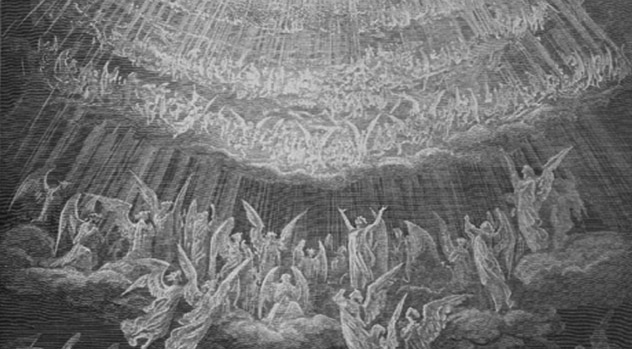This article is taken from PN Review 263, Volume 48 Number 3, January - February 2022.
Translating Dante
Ned Denny, B: After Dante (Carcanet) £18.99

How much do poets know about their own creations? Other than post-partum rationalisations such as Poe’s ‘Philosophy of Composition’ or Coleridge passing on the blame to the Person from Porlock, there are not many confessions of how the trick works, and even these are rarely convincing, maybe because deep down inside every bard is in fact a doubting, doubtful craftsperson with little or no idea of how this creation thing came about. Dante, however, was clearly aware of what he was accomplishing as he was working on his Commedia. Rarely was a poet so conscious of his craft, of how his thoughts were faithfully incarnated in his words, both as sense and as sound. I can’t think of any other poet who with such hubris dares us, his readers, to follow him on the sea of invention and discovery that he is himself fording for the first time, while proudly telling us to ‘wheel about’ because our puny crafts (except for a few happy ones) cannot cross the ocean he is about to cross: ‘Do not set out,’ he warns us at the beginning of Paradiso, ‘on depths where, losing me, you’ll lose yourselves.’ What poetic chutzpah, what absolute confidence in the poetic art, are necessary to tell us, as Dante does, that he’s received among the inhabitants of the Noble Castle of the First Circle of Hell –Homer, Horace, ...

How much do poets know about their own creations? Other than post-partum rationalisations such as Poe’s ‘Philosophy of Composition’ or Coleridge passing on the blame to the Person from Porlock, there are not many confessions of how the trick works, and even these are rarely convincing, maybe because deep down inside every bard is in fact a doubting, doubtful craftsperson with little or no idea of how this creation thing came about. Dante, however, was clearly aware of what he was accomplishing as he was working on his Commedia. Rarely was a poet so conscious of his craft, of how his thoughts were faithfully incarnated in his words, both as sense and as sound. I can’t think of any other poet who with such hubris dares us, his readers, to follow him on the sea of invention and discovery that he is himself fording for the first time, while proudly telling us to ‘wheel about’ because our puny crafts (except for a few happy ones) cannot cross the ocean he is about to cross: ‘Do not set out,’ he warns us at the beginning of Paradiso, ‘on depths where, losing me, you’ll lose yourselves.’ What poetic chutzpah, what absolute confidence in the poetic art, are necessary to tell us, as Dante does, that he’s received among the inhabitants of the Noble Castle of the First Circle of Hell –Homer, Horace, ...
The page you have requested is restricted to subscribers only. Please enter your username and password and click on 'Continue'.
If you have forgotten your username and password, please enter the email address you used when you joined. Your login details will then be emailed to the address specified.
If you are not a subscriber and would like to enjoy the 285 issues containing over 11,500 poems, articles, reports, interviews and reviews, why not subscribe to the website today?
If you have forgotten your username and password, please enter the email address you used when you joined. Your login details will then be emailed to the address specified.
If you are not a subscriber and would like to enjoy the 285 issues containing over 11,500 poems, articles, reports, interviews and reviews, why not subscribe to the website today?




